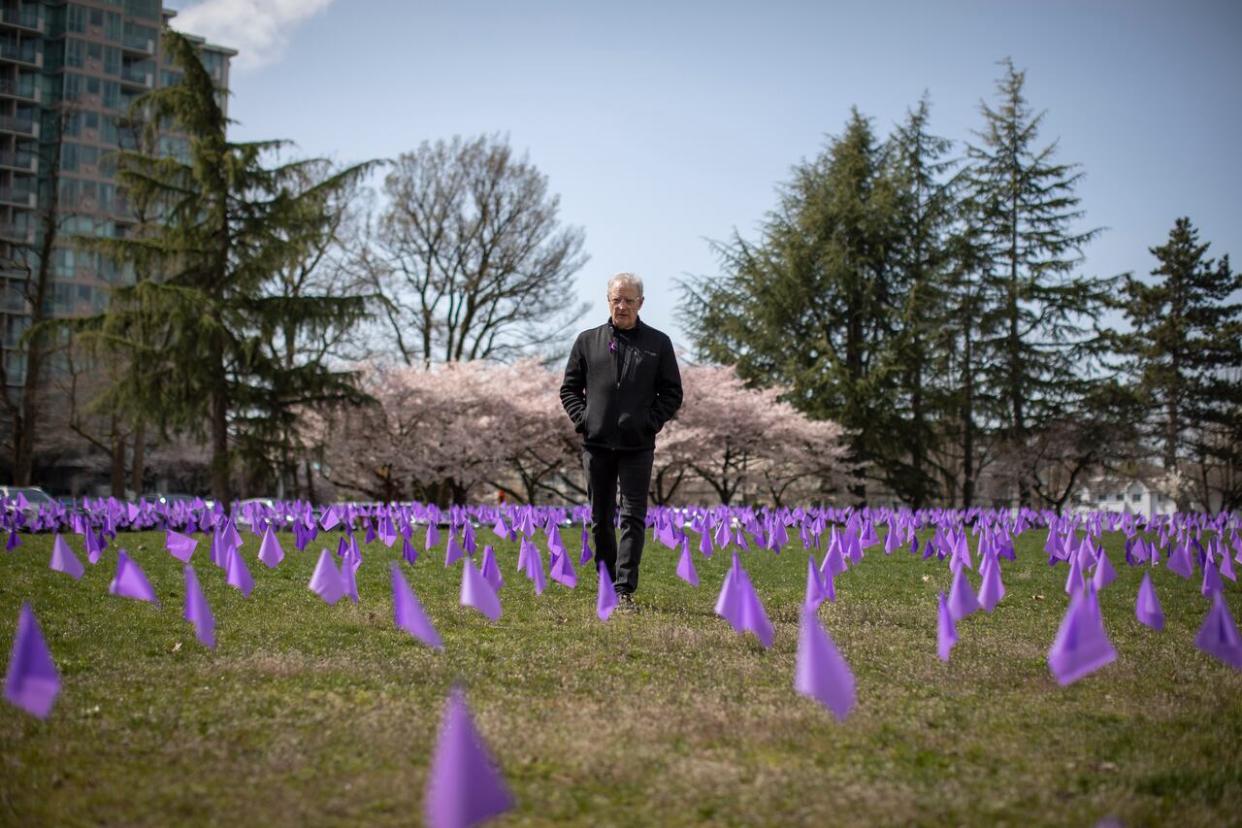182 people in B.C. died due to toxic drugs in April: coroner

As the public health emergency over toxic drugs in British Columbia entered its ninth year in April, 182 more people lost their lives to the crisis that month, according to the B.C. Coroners Service.
The reported death toll since April 2016 is now more than 14,500.
The number of deaths caused by to unregulated toxic drugs in April is down compared to the same month last year, when 239 people lost their lives, the coroner said, but added that the risks associated with drugs in B.C. remains high.
The province said 763 people had died due to toxic drugs in the first four months of the year, averaging around six people every day.
"Each of these lives matters," Mental Health and Addictions Minister Jennifer Whiteside said in a statement. "There are not enough words to bring comfort to those who are grieving and to everyone in every corner of our province and across the country who has experienced a preventable loss of a loved one due to toxic drugs."
The province said about half of those who died in April were between the ages of 30 and 49, 70 per cent of whom were men.
That said, the number of women dying from toxic drugs has nearly doubled since 2020, according to provincial data. The province did not report on the rate of death from toxic drugs for people who identify as other genders.
New adviser for psychiatry, toxic drugs
On Wednesday, the province announced it had appointed a new scientific adviser to look at mental health, addiction and drug policies in B.C., who will provide recommendations to help improve them — and, in particular, look at how best to help people with a complex triad of mental health care needs.
Dr. Daniel Vigo said care for survivors, as well as next steps, can be complicated.
Survivors can end up with severe mental illness, substance use disorder and an acquired brain injury, which can result in varying degrees of behavioural issues, he said.
In a news conference Wednesday, Premier David Eby said addictions physicians in B.C. are struggling to support people with that trio of diagnoses.
Vigo said brain injury often means people lose functions required to engage in care and treatment, and they have difficulty controlling impulses and determining what actions are or aren't in their best interest.
"That presents an enormous challenge," he said.


